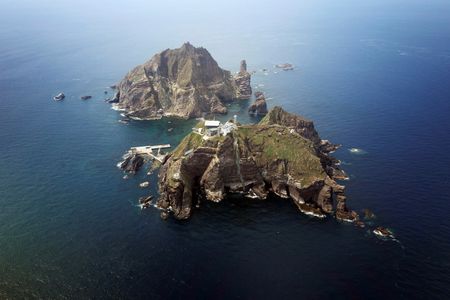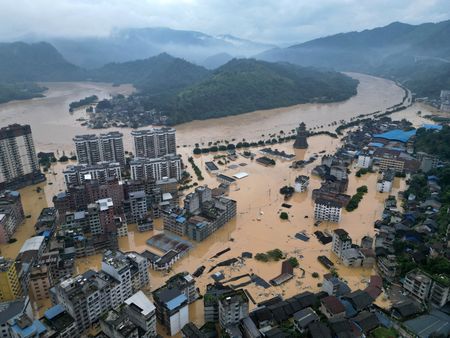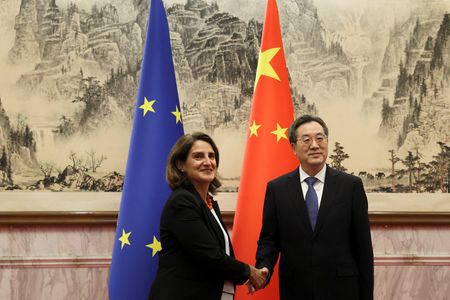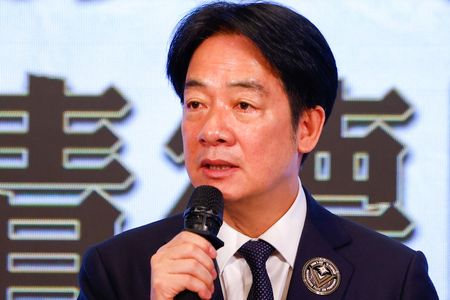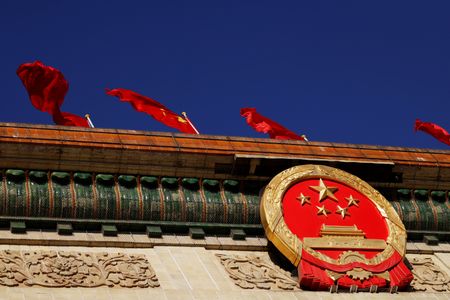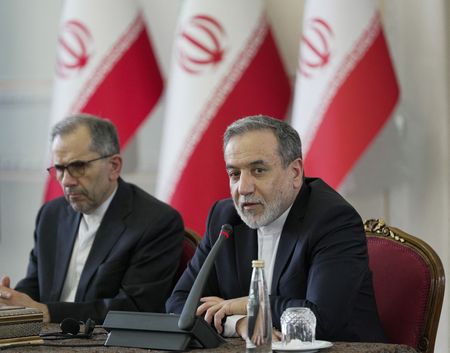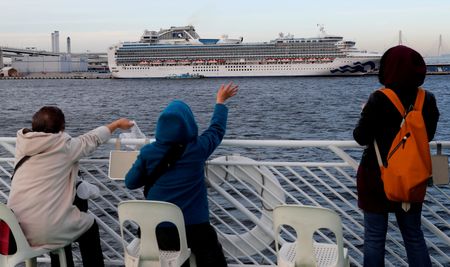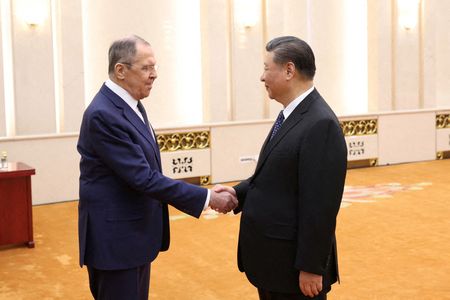By Lewis Jackson and Kirsty Needham
BEIJING/SYDNEY (Reuters) -China and Australia will keep open dialogue and look for areas of cooperation despite strategic competition in the Indo Pacific region, Australia Prime Minister Anthony Albanese said on Tuesday after meeting China’s President Xi Jinping in Beijing.
China was willing to “promote further development in the China-Australia relationship,” Xi said in remarks at the start of the meeting.
Albanese’s visit to China comes as Beijing tries to capitalise on U.S. President Donald Trump’s sweeping trade tariffs by presenting itself as a stable and reliable partner.
Australia’s trade relationship with China was separate to Canberra’s handling of U.S. tariffs, Albanese told reporters, speaking after a lunch with Xi at the Great Hall of the People.
Albanese said a decade-old free trade agreement with China, Australia’s largest trade partner, would be reviewed, and that the two leaders agreed to potential new cooperation on de-carbonisation.
Albanese said he raised Australia’s concerns over the Chinese navy’s conduct of short notice live fire exercises in the Tasman Sea between Australia and New Zealand in February.
Xi responded that China “engages in exercises just as Australia engages in exercises”, Albanese told reporters.
“We have strategic competition in the region but we continue to engage in order to support peace and security in the region and stability in the region,” he said.
Chinese state media outlet Xinhua said Xi emphasised in the meeting that China and Australia should continue to enhance strategic mutual trust, create a favourable business environment for both sides, and “safeguard multilateralism and free trade” in the face of a complex international landscape.
“Dialogue needs to be at the centre of our relationship,” Albanese said in opening remarks to Xi.
Albanese is expected to meet Chinese Premier Li Qiang later on Tuesday.
Australia, which regards the United States as its major security ally, has pursued a China policy of “cooperate where we can, disagree where we must” under Albanese.
In the run-up to the visit, China signalled repeatedly it was open to deeper cooperation. On Tuesday, the state-owned China Daily newspaper published a glowing opinion piece about the visit and said it showed countries with different political systems could still cooperate.
However, any cooperation is likely to be constrained by long-standing Australian concerns around China’s military build-up. Albanese said he had raised the case of jailed Australian writer Yang Hengjun with Xi.
Beijing has previously criticised Canberra’s increased screening of foreign investment in critical minerals and Albanese’s pledge to return a Chinese-leased port to Australian ownership.
Australia’s exports to China span agriculture and energy but are dominated by iron ore, and Albanese has travelled with executives from mining giants Rio Tinto, BHP, and Fortescue, who met Chinese steel industry officials on Monday, at the start of the six-day visit.
Bran Black, CEO of the Business Council of Australia, said Australia’s Bluescope Steel would also be at Tuesday’s business roundtable, along with China’s electric vehicle giant BYD, Chinese banking executives, Baosteel and state-run food group COFCO.
“First and foremost we use fixtures such as this to send a signal that business-to-business engagement should be welcomed and encouraged,” Black told Reuters on Tuesday.
(Reporting by Lewis Jackson and Zhang Yukun in Beijing; additional reporting by Kirsty Needham and Alasdair Pal in Sydney; Writing by Kirsty Needham; Editing by Stephen Coates, Kate Mayberry and Michael Perry)

